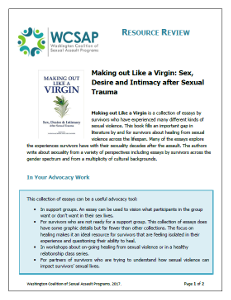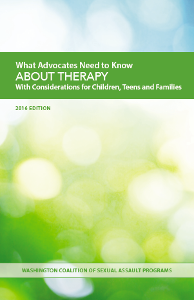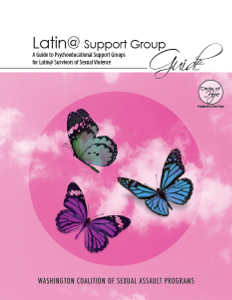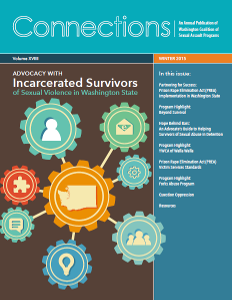While we do have an emerging evidence base for effective prevention programs, it is still relatively limited and may not be appropriate for the community you are working with. Sometimes we hear that a research evidence-base is the most important factor in programming. However here in Washington State, and many other places too, we also prioritize community specific, community-driven prevention initiatives and these do not always have an evidence-base established. This tip shares resources to…
- Prevention
- Working With Survivors
- Accreditation
- Advocacy Areas
- Culturally Specific
- Legal Resources
- Management
- Medical Resources
- SA Protection Order
- Subpoenas
- Support Groups
- Tech Safety
- Resources
- Policy
- Training




